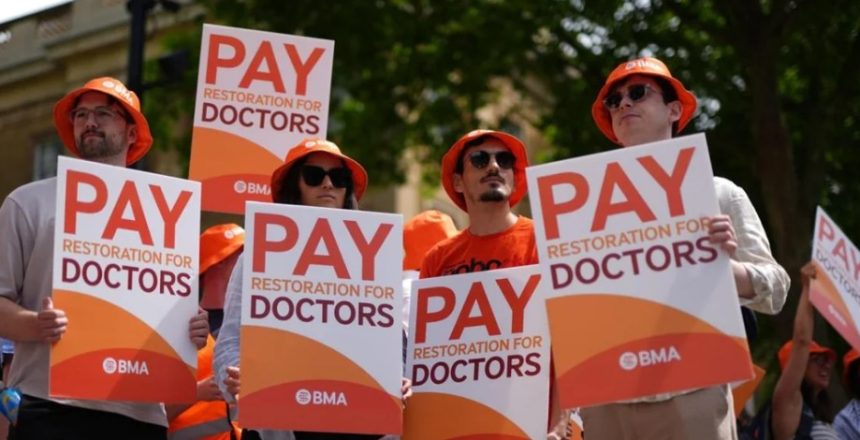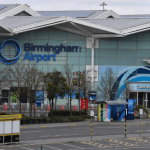The NHS is heading into yet another tough spell as thousands of resident croakers begin a five-day strike across England on Friday.
The rearmost strike, part of a long-running pay disagreement, is stirring warnings from health leaders who say continued artificial action could force cuts to frontline NHS staff, smaller budgets, and longer waiting lists for cases.
This strike is the 13th round of artificial action by croakers since March 2023, and it’s hitting at a time when the health service is already stretched thin.
Around 77,000 resident croakers, who make up roughly half the NHS medical pool, are eligible to join the strike. These are largely professed croakers with over eight years’ experience in hospitals or three times’ experience as GPs.
Mounting financial strain on stretched NHS budgets
NHS Confederation and NHS Providers, organisations representing health trusts, say the fiscal pressure is getting too insoluble to ignore.
The last five-day strike in July is estimated to have brought the NHS£ 300 million, a sum that isn’t reflected in the system’s formerly tight budget.
Five days of strike action in England starts today.
These strikes could have been averted, if @Wesstreeting had a credible pay and jobs offer for us to consider.
See you on the picket lines: https://t.co/kgv2UvWoo3 #PayRestoration #EndTrainingCrisis pic.twitter.com/63dm2mnAY0
— Resident Doctors (@BMAResidents) November 14, 2025
The concern is simple if strike costs continue to helical, NHS leaders may be forced to make tough decisions, including reducing staff figures, delaying operations, or cutting back on individual tests and routine care.
Indeed, recent announcements show that around 18,000 administrative posts in the health service have already been approved for redundancy, as seen in these recent staffing cuts, highlighting how wider workforce pressures are starting to bite.
Matthew Taylor, chief executive of the NHS Confederation, didn’t mince his words: “There is no doubt that patients will bear the brunt of this disruption, with tens of thousands of tests, appointments and operations likely to be delayed or cancelled.”
He warned that people could be left “waiting in pain or discomfort”, unsure when their treatment will be rescheduled. With winter illnesses like flu already increasing, he said the NHS risked “limping into a very difficult winter”.
Progress on NHS waiting lists at risk
The strikes come just as new data suggested that waiting lists may eventually start to dip after months of rising figures. Numbers released on Thursday showed a slight fall in September, which health leaders took as an early sign of progress.
But that instigation may now be in trouble. Last time occupant croakers went on strike, further than 54,000 procedures and procedures were cancelled or tallied, despite hospitals managing to deliver 93 of planned exertion.
The fear is that continued dislocation could push waiting lists back over again, leaving cases staying longer for essential care.
Interestingly, a poll published revealed that 48% of resident doctors felt the strike should be called off, while only 33% believed it should go ahead. It suggests opinion among the workforce is far from unanimous.
Government refuses to reopen pay talks
Health Secretary Wes Streeting remains firm that the Government will not revisit pay negotiations for resident doctors. He says they have already received a 28.9% pay rise over three years, the largest in the public sector.
Writing in, he criticised BMA leaders for their approach, saying: “This strike isn’t about fairness anymore. It’s about political posturing. It’s in poor taste and it’s fundamentally wrong.”
But the British Medical Association (BMA) insists its members need a 26% pay uplift just to restore real-terms earnings lost over years of wage stagnation and inflation.
Tensions rise over emergency cover during strikes
The situation escalated further when the BMA said it would not agree to “derogations”, arrangements where striking doctors are temporarily brought back for emergency needs, unless trusts first cancel planned work and offer proper incentives to non-striking staff.
A letter from senior BMA figures Dr Tom Dolphin and Dr Emma Runswick reminded hospital leaders that derogations are: “not in place to avoid disruption caused by industrial action but to ensure that in unexpected and extreme circumstances patients will continue to receive safe care.”
This came shortly after NHS England chief executive Sir Jim Mackey instructed hospitals to deliver at least 95% of planned activity during the strike and avoid using the BMA’s rate card, which sets hourly fees up to £313, when bringing in cover from senior doctors.
Daniel Elkeles from NHS Providers said trusts were doing everything possible to maintain patient safety and only request derogations “in good faith” during genuinely extreme circumstances.
Doctors push back against criticism
Dr Jack Fletcher, chair of the BMA’s resident doctors committee, accused NHS managers of “emotionally blackmailing” staff who are participating in legitimate industrial action.
He said the problems the NHS is now facing did not appear overnight: “We have doctors sitting on bins because there aren’t enough chairs, patients routinely being seen in corridors, A&E waits through the roof, and rota gaps are an accepted norm.”
He warned against attempts to “gaslight the public” into blaming doctors for the NHS’s wider issues.
Advice for patients
Despite the disruption, NHS England is urging people to continue seeking care as usual:
- Attend appointments unless told otherwise
- Use 999 or A&E for emergencies
- NHS 111 remains available for non-emergency advice
- GP services continue to operate
With the BMA’s strike mandate expiring in January, both sides face a crucial few weeks. The question now is whether negotiations can restart, or whether the NHS will face further industrial action as winter pressures build.






